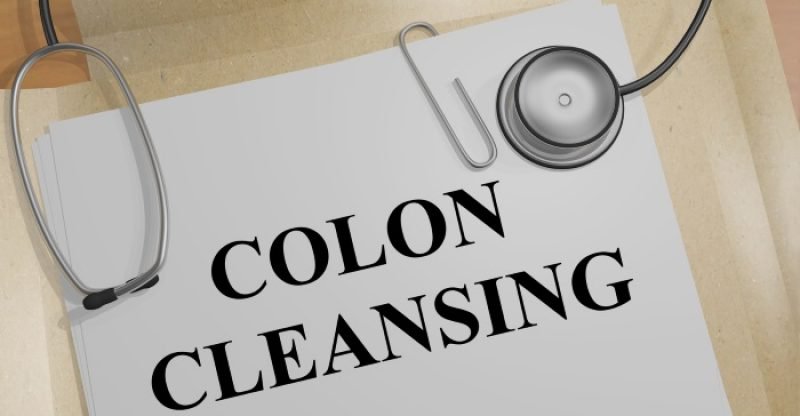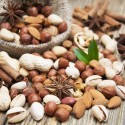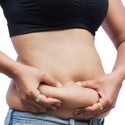Best Diet to Cleanse Your Colon
Your colon performs essential functions in your overall health, and when it is not working correctly, you will feel the effects.
The colon not only eliminates waste from your digestive system but also allows you to absorb the essential vitamins and minerals from the foods you eat.
Keeping your colon healthy and functioning should be your top priority.
Our guide shares with you all the ways the colon is vital to your health, as well as how you can cleanse it using an organic colon cleanse that prevents toxic buildup.
The colon has the unfortunate job of evacuating many of the harmful compounds your body takes in.
From chemicals to microbes, from toxins to food wastes, your colon needs to be working properly, or these compounds won’t be appropriately eliminated.
Taking care of your colon is something you should do every day by eating healthy foods and lots of fiber.
When your colon needs some extra attention, though, a cleanse can help rid your body of unwanted wastes, and restore your colon to its best condition.
Keep reading to learn more about how to take care of this critical part of your body.
What Does Your Colon Do?
As the most significant part of your large intestine, your colon, also called the large bowel, is a large tube that connects the rest of your digestive system to your anus.
Your large intestine is comprised of four parts, including the cecum, the colon, the rectum, and the anus.
Your colon is made up of layers of fat and muscle, and it is lined with a mucus membrane (1).
Your colon resembles a rounded rectangle, and it takes up most of the space in your abdomen.
Your small intestine actually resides in the empty space your large intestine creates with its arch-like shape.
Without your colon, your body would have a very hard time processing the food you eat.
When food enters your colon, it is mostly liquid.
As it passes through, it is broken down even further by the array of healthy bacteria that live there.
Your colon is also responsible for absorbing the liquid and nutrients from this digested food.
Whatever is left over that your body cannot use, your colon turns into waste in the form of feces, which is then stored in the final part of your colon until your body expels it (2).
Your Colon’s Importance
Your entire health, then, can be affected when your colon is not working properly.
First, you will not get the nutrients your cells, muscles, and organs need to function correctly.
Second, you will not be able to absorb water from your food, which could result in dehydration.
When waste is stored too long in your intestines, you can feel sluggish and sick.
When your colon stops working altogether, this can even lead to death.
Keeping your colon healthy impacts all of your body systems.
When it is working well, the rest of your systems and organs benefit, but when it is malfunctioning, it can affect your physical and mental wellness in serious ways.
Common Colon Issues
Your colon can suffer from a number of diseases and disorders that disrupt its proper function.
While some of these are just inconvenient and embarrassing, like excess gas, others can be fatal, like colon cancer.
Colorectal cancers are among the most common forms of cancer in the U.S.
Over 140,000 people a year are diagnosed with colon or rectal cancer, and this number is unfortunately growing; these diseases claim the lives of over 50,000 annually (3).
Getting screened for colorectal cancer, and knowing the signs and symptoms, are important in helping to catch this disease early.
Other diseases and disorders that affect the colon include:
- Diverticulitis
- Irritable Bowel Syndrome (IBS)
- Crohn’s disease
- Ulcerative colitis
- Colonic polyps
Symptoms of Colon Problems
It can be difficult for the average person to identify a specific colon problem.
There are signs that can alert you to issues with your colon, and if you experience these with any regularity, you should talk to your doctor, who can provide you with an accurate diagnosis.
Symptoms to watch for include (4):
- Pain in your abdomen
- Blood in your stool
- Excess gas or flatulence
- Constipation
- Fatigue
- Unexplained weight loss
While most colon problems turn out to be acute or minor illnesses, these can lead to larger, more significant difficulties over time if left untreated.
Paying attention to your body’s normal bowel movements, response to specific foods and other reactions to your normal digestion will help you know when something is amiss that may need to be investigated further.
Keeping your colon healthy is, therefore, a top priority for all of us.
Eating a healthy diet in order to cleanse your colon and keep it working correctly, then, is something we should all do to prevent symptoms and clear the feces when it is backed up.
Understanding Colon Cleansing
Your colon’s primary function as the food waste station and repository means it often holds toxins, pollutants, and other unwanted compounds.
These harmful compounds can accumulate if left unchecked, and this invites problems for your colon’s health.
To encourage the natural detoxification of your colon, cleansing is an excellent method for eliminating the harmful toxins that collect.
Your body already does a really good job of eliminating waste.
A colon cleanse is just a natural way to help improve this detoxification process.
A cleanse can help restore your digestive health, keep your bowel movements regular, and encourage the natural elimination of wastes that accumulate in your system.
Colon cleanses have been used for centuries, dating back to the year 1500 BC in ancient Egypt, so this technique is not new.
The Purpose of the Colon Cleanse
Your colon provides a home for billions of bacteria, called microflora.
These bacteria account for the bulk of the feces you eliminate from your body, and they play important roles in helping you extract water and nutrients from the foods you eat.
The bacteria in your colon also help maintain the proper pH balance, control your level of hunger, and help fight off any potentially harmful bacteria that make their way through your digestive system.
Without these helpful bacteria, digestion would not be possible, and all your body systems would suffer.
Are Colon Cleanses Necessary?
There are many things in today’s world that can interfere with your digestive system’s ability to remove thoroughly waste from your body.
You may struggle to complete regular bowel movements due to allergies, inflammation in your digestive system, poor gut microflora health, or the consumption of harmful toxins like pesticides and other chemicals.
As our diet has changed over the past 50 years, Americans are increasingly suffering from digestive disorders, including IBS and chronic constipation.
So, while your body is capable of removing waste on its own, it is not always doing this job to the best of its ability.
Nearly 20 percent of adults worldwide are affected by IBS, while chronic constipation has become one of the most common digestive problems around the world (5).
These issues are very common among those who have an unhealthy diet, the elderly, pregnant women, those who are hospitalized, and people taking prescription medications.
You may be a good candidate for a colon cleanse if you do not have at least one bowel movement a day.
If you are also experiencing symptoms like headaches, lack of energy, constipation, stomach cramps, or allergies, your digestive system’s health may be contributing to your feelings of being unwell, and a cleanse may help.
When you are not regularly eliminating waste from your colon, that waste builds up and combines with mucus and bacteria.
This fermented mixture then releases toxins into your body that can make you feel unwell.
Irritability, fatigue, mental confusion, and changes in appetite are all signs of a sluggish colon.
When you store waste instead of eliminating it, this also affects how well you are absorbing nutrients, which can also contribute to symptoms.
Benefits of a Colon Cleanse
While there is little empirical evidence that supports the use of colon cleanses for treating specific symptoms, there is a vast array of anecdotal evidence that supports the use of this ancient practice for promoting health and vitality (6).
When such cleanses are performed correctly, they pose no risk to your health, and they can help you feel better when your bowel movements improve.
Regular, healthy bowel movements are essential for eliminating heavy metals, bacteria, and unneeded fatty acids from your system.
When your bowels and gut are working properly, this impacts both your nervous system as well as your immune system, so keeping your colon in good working order can improve not only physical symptoms but your mental ones, as well.
When your colon is functioning well and releasing the proper nutrients, this impacts your hormonal balance, sleep, cognitive processing, and other essential functions.
While there are many ways to cleanse your colon, including using enemas and other forms of hydrotherapy, you can also use your diet to support your system and get it back on track.
The Colon Cleanse Diet
One of the primary ways you can maintain a healthy colon is to eat a healthy diet.
This can not only help you have better overall health and digestion, but it can also enhance the results of colonic cleanses, while also improving your overall wellness and energy.
A healthy diet that is good for your colon includes lots of high-fiber foods, like fruits and vegetables.
It also contains plenty of water, to keep your system properly hydrated and to help empty your colon of impacted fecal material.
In addition, a colon-healthy diet includes plant-based proteins, plenty of whole foods, a small number of healthy fats, and foods rich in probiotics.
The key, thus, to a healthy colon is not to include in your diet any more toxins or waste that your colon will struggle to eliminate.
These unhealthy ingredients are found in meats, processed foods, and foods high in sugar or fat.
These foods lack the nutrients and fiber to make them helpful to your colon, and the calories and fat are not healthy for your body in any way.
Any diet that is meant to promote colon health should include three main components, which are vegetables, fruits, and water.
Other types of foods in smaller amounts are also good.
Not only will you be supplying your body with tons of minerals and vitamins, you’ll also be getting the dietary fiber that is necessary for supporting your colon’s health.
Let’s look more closely at the foods that can support your colon health, to see what benefits your body can enjoy.
Fruits and Vegetables
The vitamins, water, and fiber found in most fruits are beneficial to your body in many ways.
Berries, apples, bananas, and citrus fruits contain antioxidants, and these fiber-rich foods will aid digestion and promote regular bowel movements, too.
Eat at least three servings of fruit every day.
Dried fruits are also high in fiber, but should be enjoyed less frequently because of their high sugar content.
Dried prunes are an excellent natural laxative, though, when you are feeling irregular (7).
The vegetables with the highest fiber content are cruciferous veggies and leafy greens.
These will also provide you with loads of antioxidants, vitamins, and minerals.
The chlorophyll in plants also promotes system detoxification.
Aim for half of your plate at each meal to be filled with vegetables.
The colors of fruits and vegetables are important, and “eating the rainbow” means you are getting a variety of colors – and therefore nutrients – in your diet.
When it comes to promoting your colon health, think about grabbing those yellow and orange vegetables first.
Peppers, carrots, sweet potatoes, squash, and other veggies in this hue range contain beta-carotene, which is known to help fight colon cancer (8).
Fermented Foods
In a healthy colon, the health of the bacteria plays an essential role.
Eating foods that are rich in probiotics can help your colon break down foods more effectively, and grow more of the good bacteria that it needs to work properly.
Foods that are high in probiotics include cultured and fermented foods like yogurt, sauerkraut, kefir, kombucha, and kimchi.
Fermented foods with little or no sugar, and made from non-dairy ingredients, are healthiest for your colon as well.
Herbs
Many different herbs have medicinal properties that can help your colon.
Peppermint, chickweed, and slippery elm are just a few that are known to soothe digestion and promote cleansing.
You can try herbs as tinctures, essential oils, supplements, or by eating them fresh.
Healthy Fats
When choosing fats that are healthy for your colon as well as your heart, you want to focus on both unsaturated fats and polyunsaturated fats.
High consumption of unhealthy saturated fats as it occurs in today’s Western diet, is contributing to the increased risk of colon cancer.
Include plenty of foods rich in omega-3 fatty acids, like cold-water fish, walnuts, and flaxseed, as well as healthy unsaturated fats like those found in olive oil.
Avoid trans fats at all costs, to decrease your risk of colon cancer and other colorectal problems (10).
Nuts and Seeds
In addition to providing needed energy to help you get through your day, seeds and nuts are also high in fiber and are abundant sources of zinc and Vitamin E.
Seeds are excellent, plant-based sources of protein.
Choose among hazelnuts, walnuts, cashews, pistachios, sunflower seeds, hemp, chia, and pumpkin seeds.
Legumes
To get the protein you need, plus the fiber your colon requires, eat plenty of beans and lentils.
These protein powerhouses promote regular bowel movements, healthy digestion, and steady levels of blood sugar.
Eating beans may even lower your risk of developing colon cancer (11).
Lean Proteins
If vegetables, seeds, nuts, and legumes don’t provide enough protein for you, you should opt for lean meats to round out your protein intake.
Fatty meats, red meat, and highly-processed meats can greatly increase your risk of colon cancer, so instead opt for lean animal products like skinless poultry, or seafood.
Not only can fatty meats harm your colon, but they also contribute to problems with obesity, which is likewise linked to higher rates of colon cancer.
So, if you choose not to use plant-based proteins like soy, legumes, or nuts, be smart about the meat you choose to consume.
Foods That Promote an Unhealthy Colon
With respect to your colon’s health, what you don’t eat can be just as important as what you do.
When you consume foods and beverages that destroy healthy bacteria in your gut, disrupt your normal digestion, and interfere with your hormone levels, you are negatively impacting your colon.
Here are the foods you should avoid if you want to support a healthy colon.
Red Meat
Eating animal flesh is difficult for your colon to process effectively.
The consumption of red meat, particularly, is linked to higher rates of colon cancer.
Reducing or eliminating red meat from your diet is a positive step toward your colon’s long-term health (12).
If you opt still to eat meat, consider doing so just a few days a week instead of daily, and opt for lean cuts instead of fat-laden ones.
Gluten
Gluten can increase problems with your colon and other parts of your digestive system, especially if you have celiac disease or other GI problems.
Even with a healthy digestive system, gluten can still cause inflammation that affects your colon.
Instead of choosing wheat-based products, opt for gluten-free varieties that have the added benefit of being higher in fiber than most grain products.
Sweeteners of All Types
Sugar and artificial sweeteners impact the bacteria both that live inside your colon and that help you carry out proper digestion.
If you are experiencing digestive troubles, especially diarrhea, sugar or other sweeteners could be the culprit.
For optimal colon health, reduce sugar in your diet to little or none.
Processed Foods
Not only is processed food high in preservatives, chemicals, and artificial ingredients, they are also low in fiber, lacking in nutrition, and high in salt and sugar.
The emulsifiers used in many processed foods are linked to increased risk of colon cancer, and many additives contribute to constipation, which is not great for your colon health, either.
Stick to a diet high in whole foods, and eat only those items that are minimally processed for optimal colon health.
Precautions
Your colon plays an important role in your digestion, as well as other major body systems.
Keeping your colon healthy is therefore important.
Colon cleansing is a way to promote better colon functioning, and a diet that includes lots of fiber and water is an excellent, natural way to cleanse your colon.
Other healthy foods that benefit your colon include fruits, vegetables, seeds, nuts, healthy fats, probiotics, and lean proteins.
For the health of your colon, you should avoid eating sugar, processed foods, red meat, and gluten.
FDA Compliance
The information on this website has not been evaluated by the Food & Drug Administration or any other medical body. We do not aim to diagnose, treat, cure or prevent any illness or disease. Information is shared for educational purposes only. You must consult your doctor before acting on any content on this website, especially if you are pregnant, nursing, taking medication, or have a medical condition.
HOW WOULD YOU RATE THIS ARTICLE?






